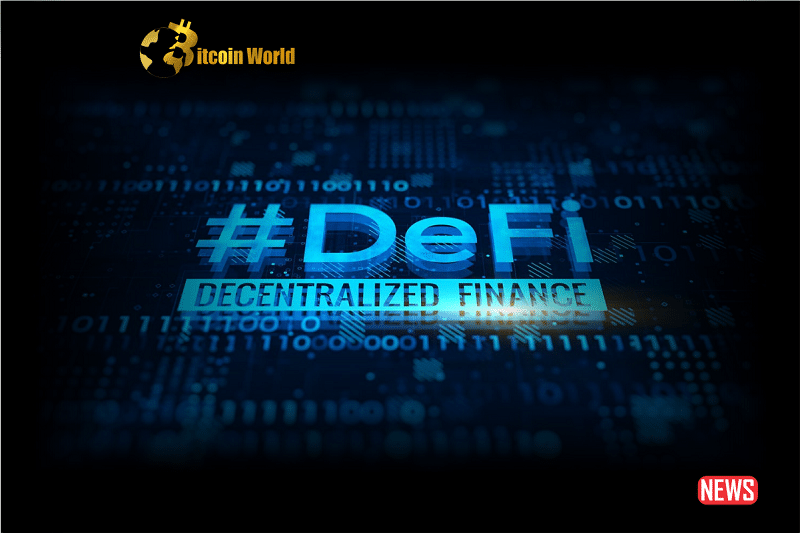DeFi, or decentralized finance, is a fast-growing sector of the cryptocurrency industry that aims to provide various financial services without intermediaries or centralized authorities. DeFi platforms allow users to lend, borrow, trade, invest, and earn interest on their crypto assets in a permissionless and trustless way. DeFi has been hailed as a revolutionary innovation that can democratize finance and empower the masses.
However, DeFi is not without risks. One of the most significant and unpredictable risks is the black swan event, which refers to an extremely rare and unforeseen occurrence that has a severe and widespread impact on the market. Black swan events can cause massive losses, liquidations, hacks, exploits, and even the collapse of entire platforms or protocols.
WHAT ARE SOME OF THE POSSIBLE BLACK SWAN EVENTS IN DEFI?
There are many factors that can trigger a black swan event in DeFi, such as:
- Market crashes: A sudden and sharp drop in the prices of cryptocurrencies can cause a cascade of liquidations, margin calls, and forced closures of positions across various DeFi platforms. This can result in a loss of collateral, a reduction of liquidity, and a disruption of normal operations.
- Smart contract bugs or exploits: DeFi platformsrely on smart contracts, which are self-executing pieces of code that run on the blockchain. However, smart contracts are not immune to errors, vulnerabilities, or malicious attacks. A bug or an exploit in a smart contract can allow hackers to drain funds, manipulate prices, or compromise the security of the platform.
- Regulatory crackdowns:DeFi platforms operate in a largely unregulated and gray area of the law, which exposes them to potential legal challenges and
interventions from governments and regulators. A sudden or unfavorable change
in the regulatory landscape can affect the legality, accessibility, or viability of
DeFi platforms, and force them to shut down, relocate, or comply with new rules.
HOW CAN BLACK SWAN EVENTS AFFECT THE USERS AND THE ECOSYSTEM?
Black swan events can have devastating consequences for the users and the
ecosystem of DeFi, such as:
- Loss of funds:Users can lose their funds either directly or indirectly due to a
black swan event. For instance, users can lose their funds if they are hacked,
liquidated, or unable to withdraw or access their assets due to a platform failure
or network congestion. Alternatively, users can lose their funds if the value of
their assets plummet, their interest rates or rewards change, or their platform
tokens become worthless due to a loss of confidence or demand. - Loss of trust:Users can lose their trust in DeFi platforms or protocols due to a
black swan event. For instance, users can lose their trust if they are exposed to
fraud, negligence, or incompetence from the platform developers or operators.
Alternatively, users can lose their trust if they are dissatisfied with the platform’s
performance, governance, or transparency. A loss of trust can lead to a loss of
users, liquidity, and reputation for the platform or protocol. - Loss of innovation:Users can lose their interest or incentive to participate in DeFi platforms or protocols due to a black swan event. For instance, users can lose their interest or incentive if they are discouraged by the high risks, costs, or
complexities of DeFi. Alternatively, users can lose their interest or incentive if
they are restricted by the legal or regulatory barriers or uncertainties of DeFi. A
loss of innovation can lead to a loss of growth, diversity, and competitiveness for
the DeFi ecosystem.
WHAT ARE SOME OF THE BEST PRACTICES TO MITIGATE OR PREVENT BLACK SWAN EVENTS IN DEFI?
There is no foolproof way to eliminate or avoid black swan events in DeFi, as they are inherently unpredictable and uncontrollable. However, there are some best practices that can help users and platforms to mitigate or prevent the negative effects of black swan events, such as:
- Do your own research:Users should always do their own research before using any DeFi platform or protocol. Users should check the platform’s credibility, security, audit, governance, and track record. Users should also understand the platform’s features, functions, risks, and rewards. Users should never invest more than they can afford to lose and diversify their portfolio across different platforms and assets.
- Use risk management tools:Users should use risk management tools to protect their funds and positions in DeFi. Users should use tools such as stop-loss
orders, limit orders, hedging strategies, insurance policies, oracles, and
emergency shutdowns. Users should also monitor the market conditions, the
platform’s performance, and their own exposure and leverage levels. - Follow the best practices:Platforms should follow the best practices to ensure the quality, security, and reliability of their DeFi services. Platforms should use reputable and audited smart contracts, implement robust testing and bug bounty programs, adopt transparent and fair governance models, and comply with the relevant laws and regulations. Platforms should also communicate clearly and promptly with their users and stakeholders and respond effectively to any issues or incidents.
CONCLUSION
DeFi is a promising and exciting innovation that can revolutionize the world of finance.
However, DeFi is also exposed to various risks, especially the black swan events that can cause severe and widespread damage to the market. Users and platforms should be aware of the potential black swan events in DeFi and take the necessary steps to mitigate or prevent them. By doing so, they can enjoy the benefits of DeFi while minimizing the drawbacks.
Disclaimer: The information provided is not trading advice, Bitcoinworld.co.in holds no liability for any investments made based on the information provided on this page. We strongly recommend independent research and/or consultation with a qualified professional before making any investment decisions.




